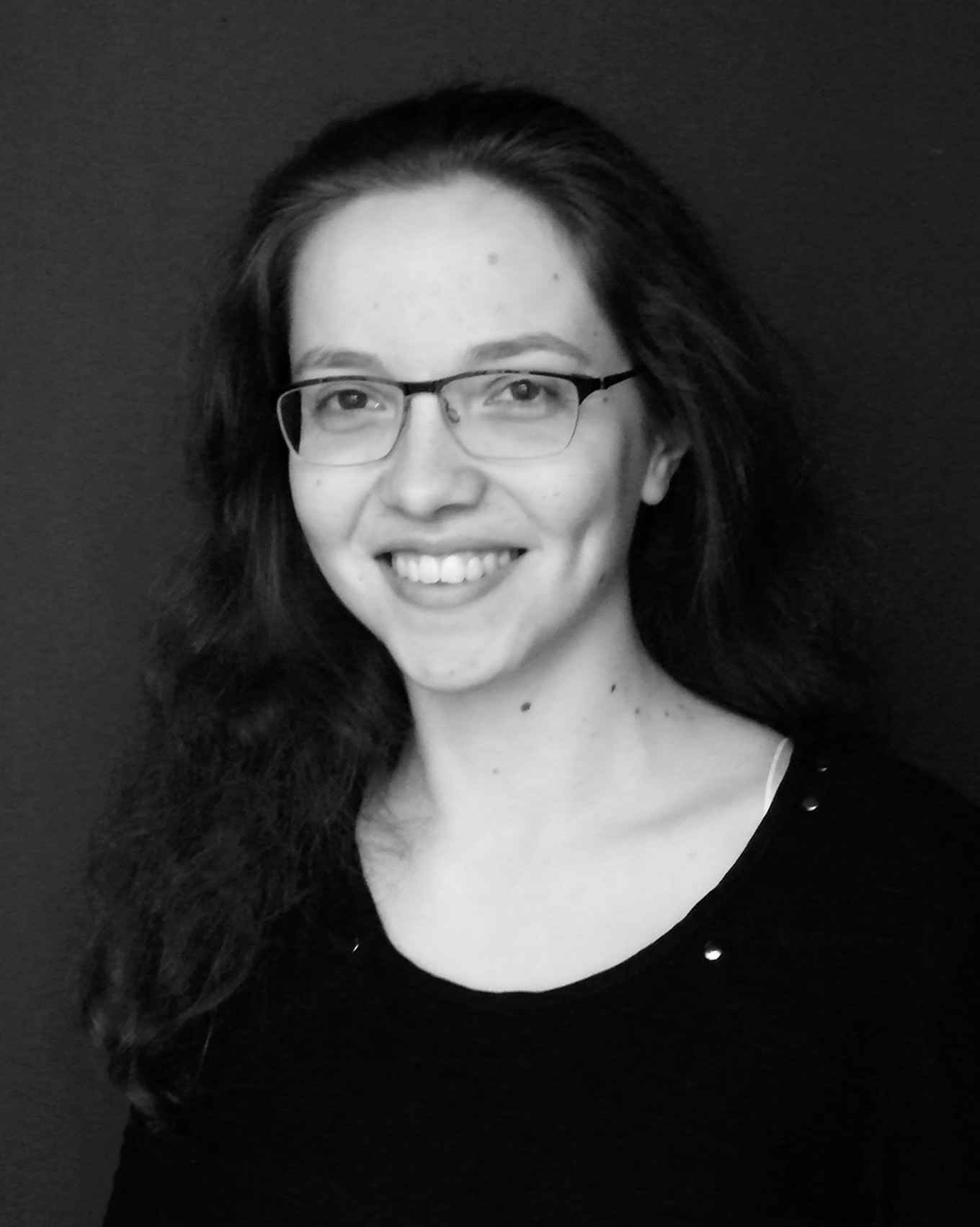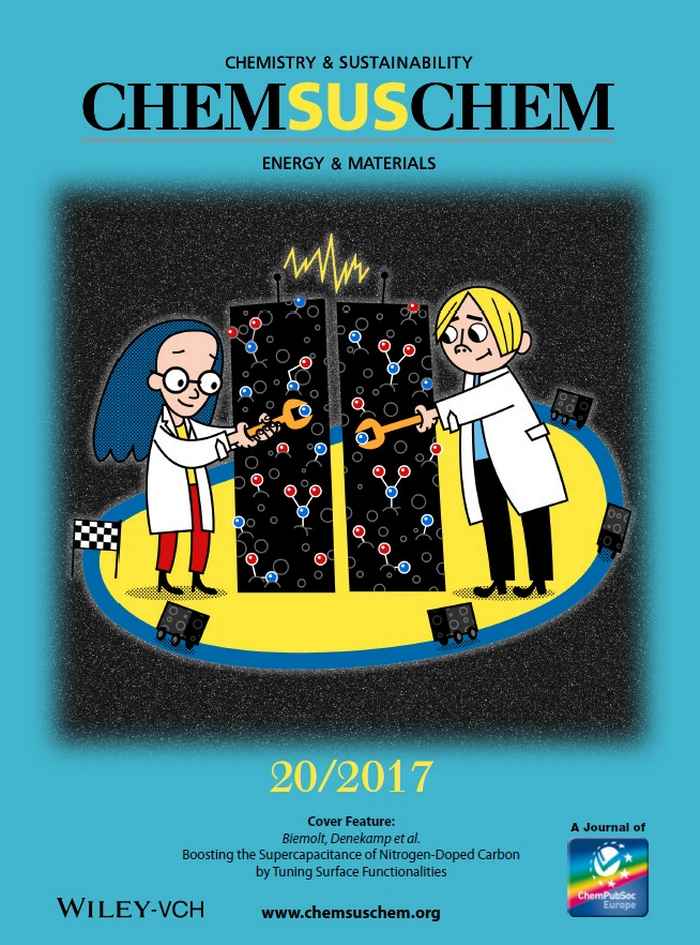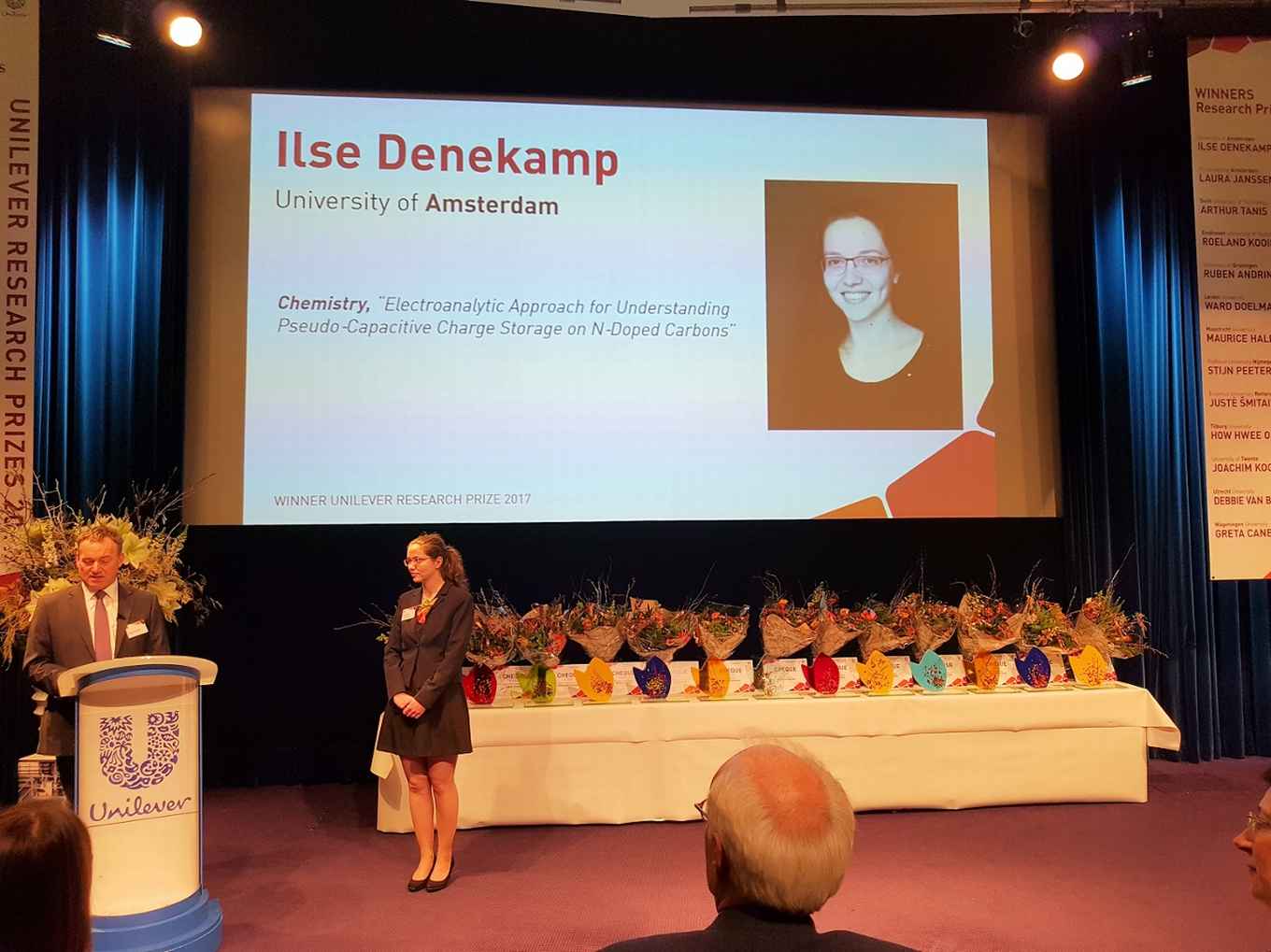Unilever Research Prize for Ilse Denekamp
11 December 2017

Denekamp is currently a PhD student with professor Gadi Rothenberg from the Heterogeneous Catalysis and Sustainable Chemistry research group at HIMS, where she also performed the master's research for which she now receives her prize.
In her thesis 'Electroanalytic Approach for Understanding Pseudo-Capacitive Charge Storage on N-Doped Carbons', Denekamp describes the analysis of a new material for supercapacitors. These are electrochemical devices that combine the properties of batteries and capacitors, and can charge/discharge large quantities of electricity in seconds.
Cover publication

Denekamp’s work is highly relevant for tomorrow’s energy storage applications, be it the fast charging of cellphones and car batteries, regenerative breaking, or the storage of renewable energy which is essential for a sustainable society. Supercapacitors are also important in electronic circuits, protecting electronic devices from electrical surges.
Denekamp was selected for the prize because she successfully combined electrochemistry, analytical chemistry and materials science in her project. Moreover she and her co-student Jasper Biemolt (Vrije Universiteit) also built the apparatus for testing the supercapacitors. Ilse Jasper saw their work published as the cover article in the leading journal ChemSusChem with the two of them as joint first authors.

About the prize
The annual Unilever Research Prize is presented to outstanding postgraduate students in chemistry, biology, mechanical engineering and social sciences. The prize was established in 1956 to strengthen the bond between industry and academic research, and to motivate students to excel. Each winner of the Unilever Research Prize receives a cheque for €2,500, and ‘The Ovum’, a glass sculpture giving the impression of a hatching bird’s egg, symbolising the birth and emergence of new talent.